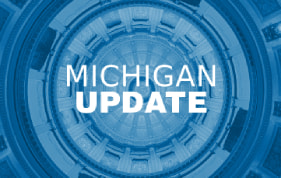This week, our In Focus reviews the New Hampshire Medicaid Care Management (MCM) Services Draft request for proposals (RFP), released by the state Department of Health and Human Services (DHHS) on July 9, 2018. The MCM program, worth $750 million in annualized spending, will provide full-risk, fully capitated Medicaid managed care services to approximately 181,000 beneficiaries from July 1, 2019 through June 30, 2024. The final RFP is expected August 10, 2018.
1814 Results found.

HMA Contributes to CPEHN Report on California’s Mental Health Equity Act
Principal Jeff Ring and Senior Consultant Helena Whitney recently coordinated and facilitated an advisory committee which provided recommendations for the implementation of California’s Mental Health Equity Act (AB 470, 2017). Using the Advisory Committee recommendations, they developed the California Pan-Ethnic Health Network (CPEHN) report, “Measuring Mental Health Disparities.”
AB 470 was proposed to mandate the Department of Health Care Services (DHCS) update the performance and outcome reporting system on mental health outcomes and utilization for beneficiaries receiving Specialist Mental Health Services in order to focus the Performance Outcomes System (POS) on disparities. Following the passage of the statute, CPEHN created an Advisory Committee of behavioral health and healthcare experts to develop recommendations for the DHCS to consider during its stakeholder engagement process.
After reviewing DHCS’ existing data and quality measures, the Advisory Committee identified data elements that the state performance outcome reporting system on mental health should include to further the work of tracking mental health disparities and achieving health equality.
Also considered was information obtained through interviews with selected subject matter experts who directed the Advisory Committee to additional performance measures and datasets, such as those currently in use by health plans that are participating in state and national pilot programs such as the Public Hospital Redesign and Incentives in Medi-Cal (PRIME) Program, the Health Homes for Patients with Complex Needs Initiative, and the Whole Person Care Program.
Special consideration was given to measures that were (1) developed by nationally-recognized organizations such as the National Committee for Quality Assurance and the Consumer Assessment of Healthcare Providers and Systems Consortium, (2) are endorsed by the National Quality Forum, (3) are widely used by other states, (4) and/or are cited in the literature as “disparity-sensitive,” meaning that the measurements help identify inequities in health outcomes and access to services.
Per the requirements of the statute, the Advisory Committee organized its measure recommendations into two phases:
- Those that are currently available from county mental health plans or the state and should be included in the initial POS reports (“Phase I”).
- Those that could be added to county reporting systems and/or may be available from Medi-Cal managed care plans and should be included in future POS reports (“Phase II”).

Washington FQHC Alternative Payment Methodology
This week, our In Focus reviews a case study called, “Spotlight on Health Center Payment Reform: Washington State’s FQHC Alternative Payment Methodology,” authored and prepared for the National Association of Community Health Centers by Health Management Associates’ Principal Art Jones and Senior Consultant Liz Arjun. The study, published in May 2018, looks at Washington’s fourth federally qualified health center (FQHC) Alternative Payment Model (APM4), implemented in July 2017.

Medicaid Managed Care Enrollment Update – Q2 2018
This week, our In Focus section reviews recent Medicaid enrollment trends in capitated, risk-based managed care in 28 states.[1] Many state Medicaid agencies post monthly enrollment figures by health plan for their Medicaid managed care population to their websites. This data allows for the timeliest analysis of enrollment trends across states and managed care organizations. Nearly all 28 states highlighted in this review have released monthly Medicaid managed care enrollment data into the second quarter (Q2) of 2018. This report reflects the most recent data posted. HMA has made the following observations related to the enrollment data shown on Table 1 (below):

MS Releases Children’s Health Insurance Program (CHIP) RFQ
This week, our In Focus Focus reviews the Mississippi Children’s Health Insurance Program (CHIP) request for qualifications (RFQ) issued by the state’s Division of Medicaid on June 8, 2018. The Mississippi CHIP program provides statewide health coverage in all 82 counties to children in families with incomes up to 209 percent of the federal poverty level (FPL). As of March 2018, 46,958 children were enrolled in CHIP.

MACPAC June Report to Congress Addresses Role of Managed Care in LTSS
This week, our In Focus comes from Senior Consultant Rachel Patterson, who provides an overview of Chapter 3 of the Medicaid and CHIP Payment and Access Commission (MACPAC) June 2018 Report to Congress on Medicaid and CHIP, which examines the growing role of managed care in long-term services and supports (LTSS). Chapter 3 includes research conducted by teams including HMA Principals Sarah Barth and Karen Brodsky regarding network adequacy for home and community-based service (HCBS) and Principals Sarah Barth, and Sharon Lewis and Senior Consultant Rachel Patterson regarding enrollment of people with intellectual and developmental disabilities (ID/DD) into MLTSS.

